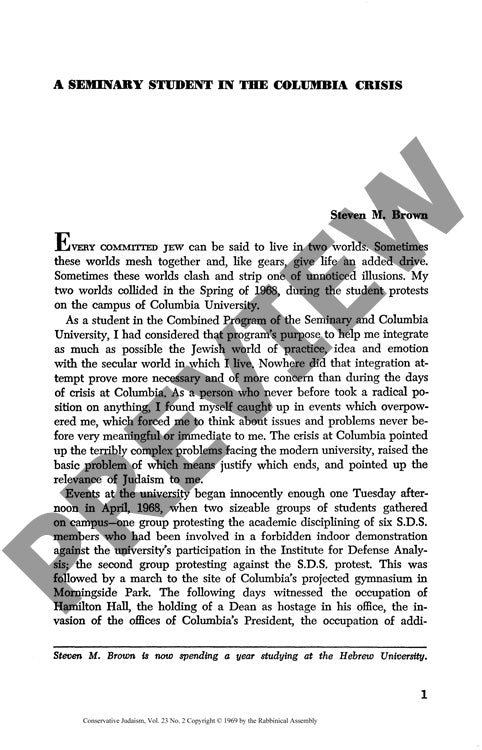A Seminary Student in the Columbia Crisi
Couldn't load pickup availability
In April 1968, as Columbia University erupted in student protests, a Jewish seminary student found himself caught between religious principles and radical activism. Drawing upon personal experiences and extensive analysis of Talmudic teachings—particularly Masekhet Sanhedrin and Rambam's philosophical works—this first-person narrative examines how Jewish theological frameworks shaped political consciousness during a pivotal moment of campus unrest. Initially supporting protest goals while rejecting occupational tactics, the author's stance evolved dramatically after witnessing police intervention, only to moderate again following Robert Kennedy's assassination. The complex interplay between religious and political imperatives emerged through responses to symbolic protest issues: the contested gymnasium construction, military research ties, and demands for student voice in governance. Autobiographical reflection reveals how Talmudic principles regarding judicial conduct and violence provided an ethical compass for navigating between institutional opposition and non-violent resistance. The resulting analysis illuminates broader tensions between religious identity and political engagement in modern American society, demonstrating how ancient Jewish teachings can inform contemporary social justice movements while establishing moral boundaries for protest actions.

More Information
-
Physical Description
-
Publication Information
Published 1969
ISBN
-
Publication Credits
Steven Brown

